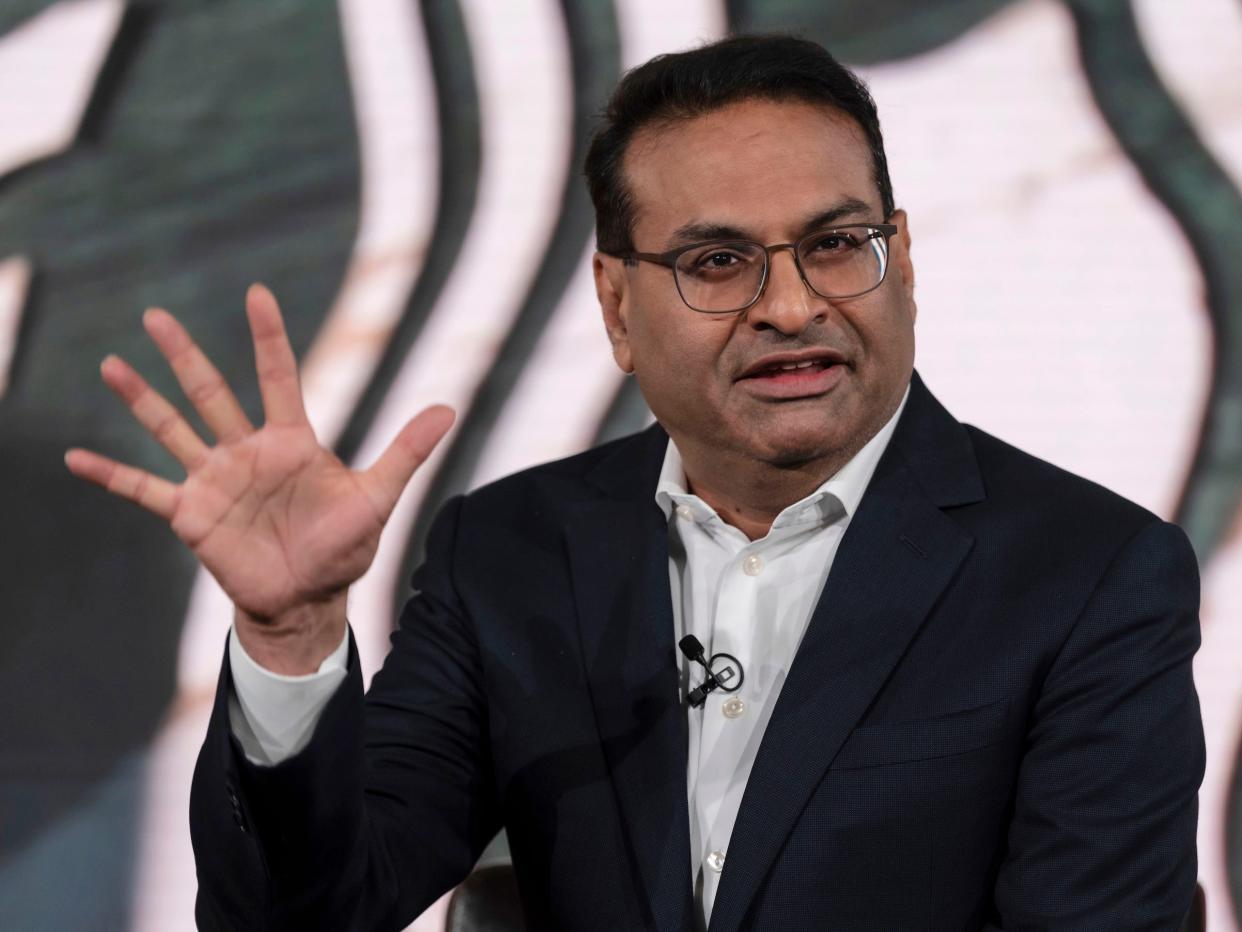Starbucks CEO worked in stores and said he found too many shortages and 1,500 combinations for cups and lids

Starbucks' CEO shared his key takeaways after spending time working in stores alongside baristas.
He said the company needed to buy cheaper cups and slash the number of lid-and-cup combinations.
He described Starbucks stores as "theaters at the front with a factory in the back."
Starbucks' new CEO, Laxman Narasimhan, shared some of his key takeaways on Tuesday after spending time working in stores alongside baristas.
He said the company needed to buy cheaper cups and slash the number of lid-and-cup combinations. He also said beverage innovation was strong, but "food could use more work."
"Currently, we have over 1,500 cup-and-lid combinations across our network," he said in a call with analysts. "As we streamline, we will create a portfolio of fewer, more sustainable, and less costly cups while further simplifying operations in our stores."
He described Starbucks stores as "theaters at the front with a factory in the back" and said the company needed to strengthen the factory.
"We are in the business of human connection," he said. "Our performance is strong, but our health can be stronger, enable the fearless in the front by strengthening the factories in the back."
The theater is where baristas interact with customers. Starbucks recently announced it was holding two-hour employee 'connection' meetings with store employees, an initiative the company said was focused on bringing people together.
The factory involves the supply chain, technology, and other parts of non-customer-facing operations.
"We are out of stock in more items than we would like," Narasimhan said.
Later, he added, "We can buy different, and we can buy better. Our end-to-end supply chain has significant opportunities to reduce cost and improve availability."
Narasimhan said he also noticed "that we are a company that strives to be different, and we are now operating in a different kind of world."
Starbucks is increasingly operating throughout the world. During the earnings call, the company highlighted its international growth, particularly in China, where the company now operates more than 6,000 stores.
"The world in which we operate is evolving, " Narasimhan said. "There is clear opportunity to build stronger capabilities, drive even deeper engagement, and adopt a global mindset."
Do you work for Starbucks or have a story to share? Contact Gloria Dawson via the encrypted messaging app Signal (+1-516-721-6598) or email (gdawson@insider.com). Check out Insider's source guide for other tips on sharing information securely.
Read the original article on Business Insider

